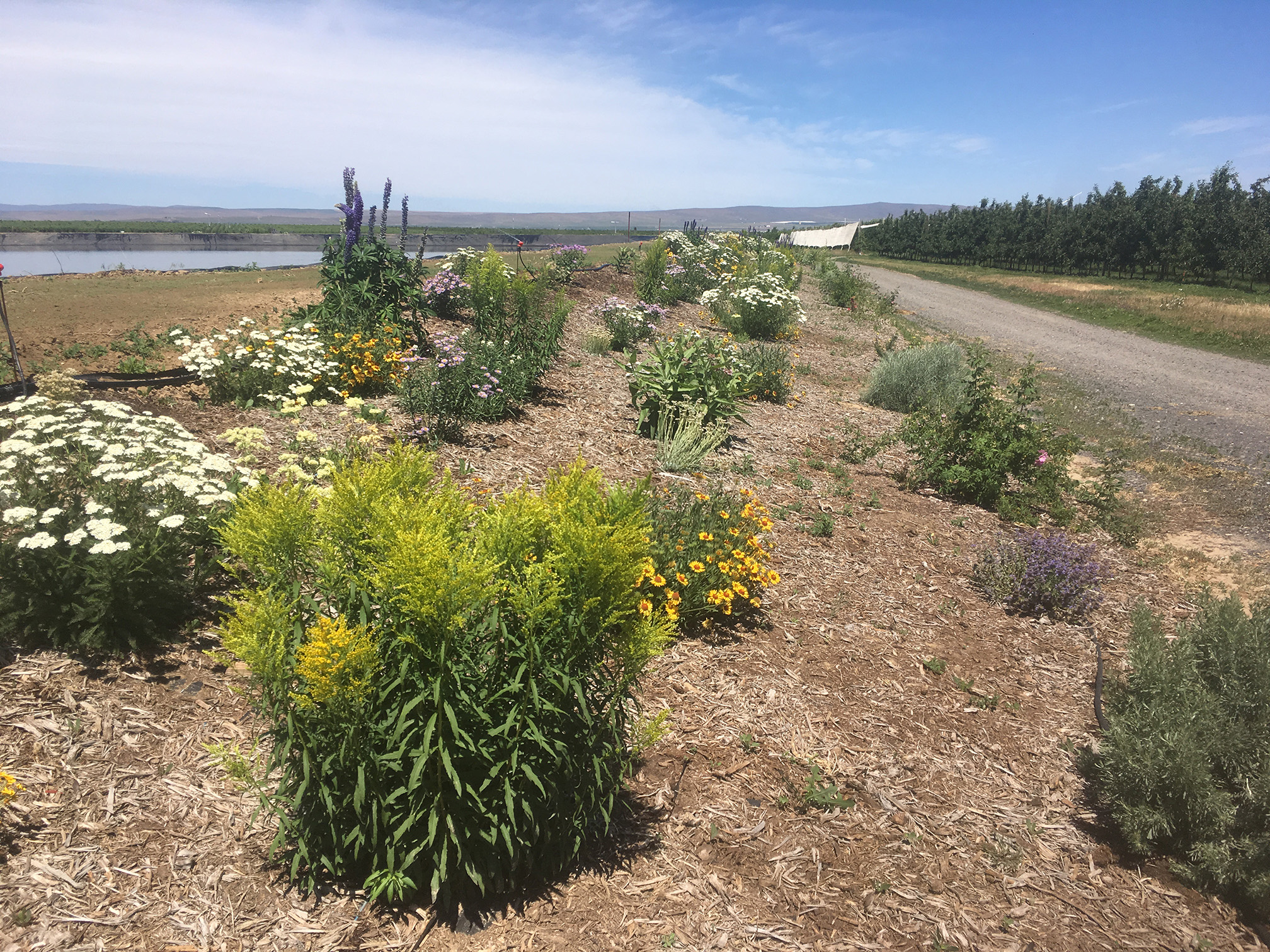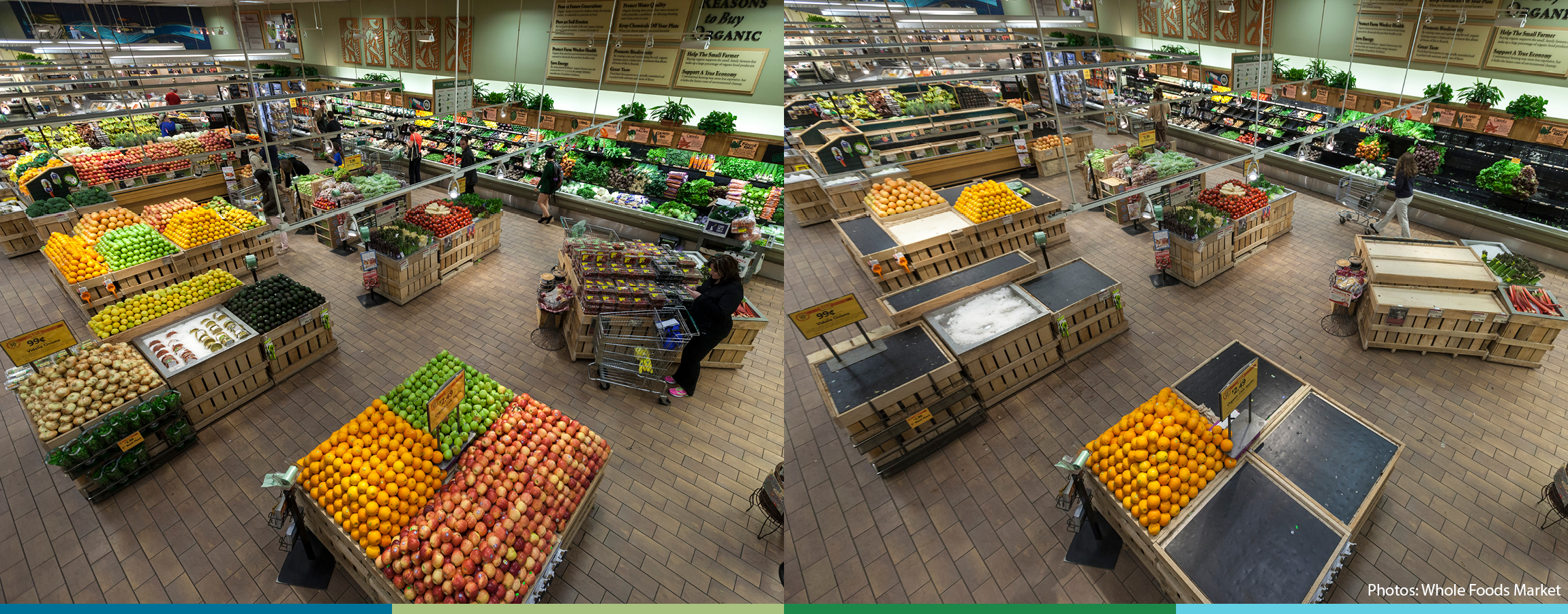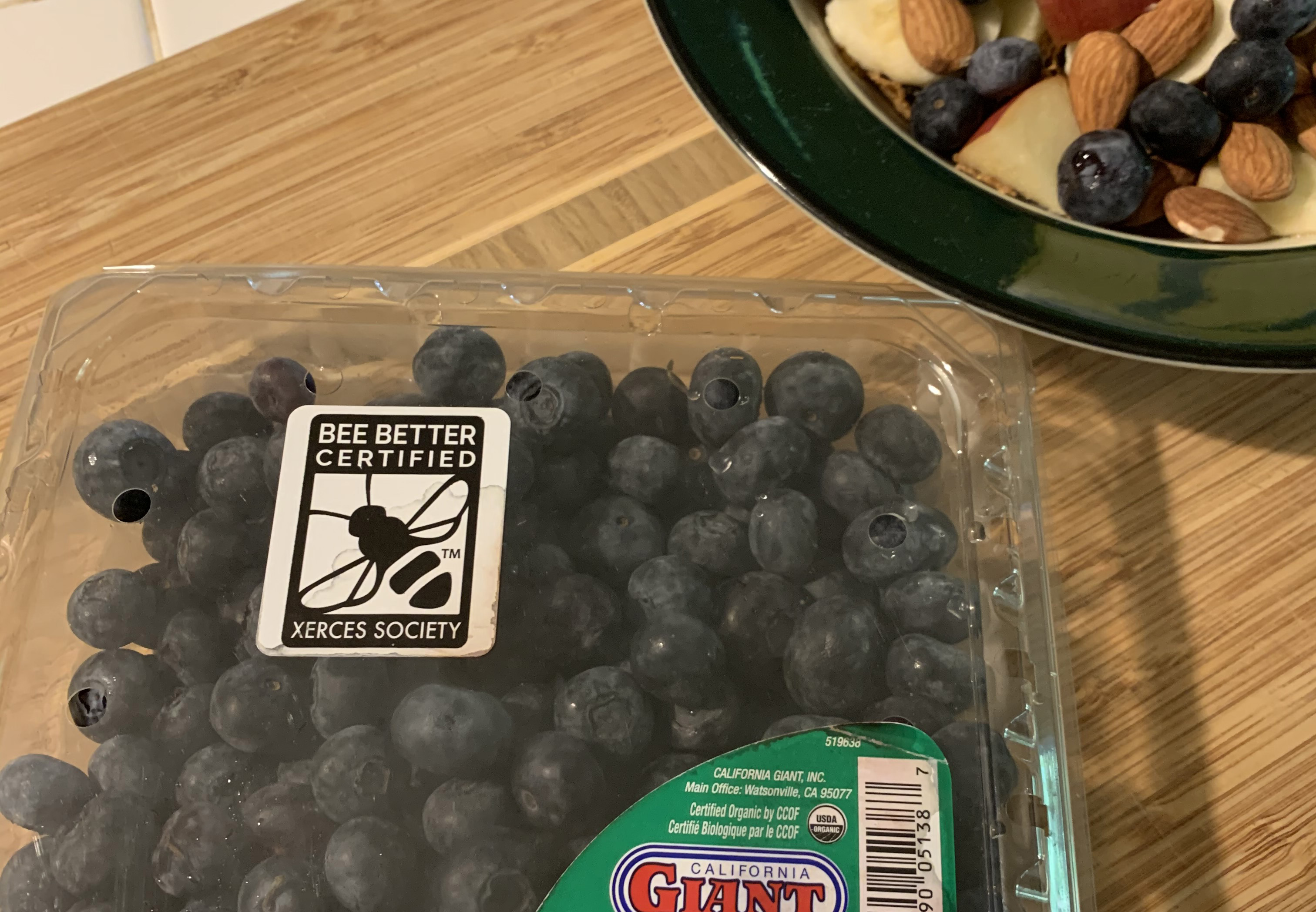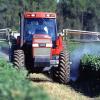As we digest the recent articles, such as this one, describing that the current rate of insect declines may lead to the extinction of 40% of the world's species over the next few decades, many reflect on what they can do to prevent us from going down that path. Businesses are a vital part of this change, as an increasing number take on purpose-driven partnerships; not only as a way of meeting their sustainability goals from an ethical or conservation standpoint, but also to meet demand from consumers as people ask for more from the products they buy.

Our partnerships with companies in the food supply industry have resulted in many thousands of acres of new habitat and miles of hedgerows that are bringing pollinators and other wildlife back into the farmed landscape. (Photo: Xerces Society / Kitty Bolte.)
In fact, the biodiversity crisis was found to be one of the top ten business sustainability trends in 2021. Since 94% of all animal species on Earth are invertebrates and many are shown to be in rapid decline, Xerces is perfectly positioned to be a key part of the solution for businesses to help avert this crisis. Many companies have already been part of the solution for years—answering the call for an all-hands-on-deck approach to invertebrate conservation. We are lucky to work with dozens of them, from independent artists to some of the world’s largest food companies (see a list of our current partners here). No matter the size, we work with businesses that share our commitment to protecting biodiversity in all its forms.
There are many ways companies make this possible. They help us achieve our mission by spreading our conservation message to employees and clients, helping us reach a broader audience. They get people involved in our programs to Bring Back the Pollinators, record bumble bee populations through Bumble Bee Watch, or to just deepen their appreciation of the importance of insects and other invertebrates to our daily lives. They are also vital funders of our work. Donations that support our work broadly are immensely valuable to our ability to grow, adapt, and explore new projects. Other donors help make our visions a reality by funding specific priority projects. Without supporters like these, we would not be able to conserve pollinators, freshwater mussels, fireflies, and the myriad other animals that keep our world moving. You can read more about these campaigns here.

These photos were taken as a part of an educational campaign by Whole Foods Market to show what would be missing from the produce section of our grocery stores in a world without pollinators. (Photos: Whole Foods Market.)
Xerces is also positioned perfectly to help companies meet their sustainability goals through on-the-ground actions to support pollinators and other beneficial insects. With the largest pollinator conservation staff in the world, we work with dozens of companies to create vital habitat at their facilities and along their supply chains. These habitats provide long-term, cost-saving benefits such as increased water-holding capacity of the soil, pest control to protect crops, and attracting native pollinators to ensure bountiful harvests. These projects vary greatly in scale, from small hedgerows at the edge of a farmer’s property to a full farm-level certification by becoming Bee Better Certified™—the first and only third-party verified, pollinator-focused farm and food product eco-label. The value of Bee Better Certified seal is immense, and not just for these important animals. A study showed that consumers are five times more willing to pay for products labelled “native bee pollinated” or bee-friendly, so companies can feel confident in their investment.

The Bee Better Certified seal shows consumers that ingredients were grown with pollinators and other beneficial insects in mind. (Photo: Xerces Society / Matthew Shepherd.)
As more companies realize the real and intrinsic value of supporting the conservation of pollinators and other invertebrates, we are excited to be a catalyst for this progress. These businesses are helping people recognize insects and other invertebrates for what they truly are, what long-time Xerces science advisor E. O. Wilson so memorably described as “the little things that run the world.”
If you’re interested in working with us, please reach out to businessgiving@xerces.org, visit our business partnerships page, or fill out our corporate support inquiry form.
Further Reading
Find out how business partners can work with Xerces
Read about insect declines and what you can do to help in this article by Xerces Executive Director Scott Black
Learn about how to become Bee Better Certified



